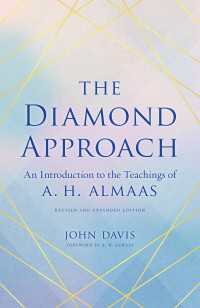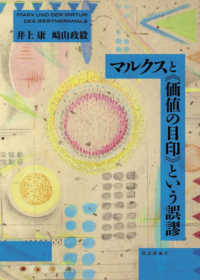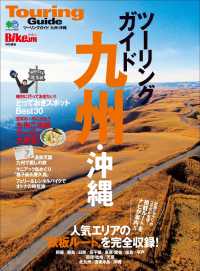Description
This volume focuses on the collective wisdom of Asian philosophies and their implications for music education. All twenty chapters are written by highly regarded philosophers and music educators steeped in various Asian traditions. These chapters will include an explanation of a prominent philosophical tradition, evidence in a contemporary music teaching and learning settings (including its inception and historical development along with an explanation of how the philosophical tradition works in contemporary music education), and suggestions for potential directions in the near and distant future.The book is organized into five sections. Section I is based on Chinese philosophical traditions, which have the longest history and are some of the most influential across Asia and beyond. Chapters in Section II present a snapshot of Japanese and Korean views, beginning with the musical practices in the Joseon Period (1392-1910) that are still being practiced in South Korea today to Western influences in 19th century Japan. A collection of philosophical traditions from South and Southeast Asia are contained in Section III, ranging from the insights of King Bhumibol Adulyadej, King Rama IX of Thailand, an accomplished jazz musician, to the Balinese notion of taksu, a form of supreme energy and divine power crucial for compelling performances in the performing arts. We venture into the Islamic and the Middle Eastern world in Section IV, where the dance practices of the Hadhrami Arabs in the Malay Archipelago to traditional sharah music are contextualized within Islamic philosophy. This section also describes the philosophical ideas of the 12th-century Persian philosopher and founder of the Illuminationist (Ishraq) philosophy, Shihab al-Din al-Suhrawardi, arguing that his ideas have much to recommend music education, as this approach requires students to listen in deeper ways, absorb more abundantly, and move beyond arts education to encompass the education of the whole person. Section V concludes with a metaphorical view on a New Silk Road in music education in the 21st century, where ideas are traded for mutual benefit and the development multicultural philosophies of music education.While there are numerous publications on the philosophy of music education rooted in the Western philosophical traditions of ancient Greece, the Asian philosophical voice is virtually silent outside of Asia, and this volume aims to begin the long process of redressing this imbalance. This volume will open readers to the richness of Asian philosophical sources and hopefully stimulate dialogues that could generate new insights and directions for further development, cross-pollination, and application of some of the world's earliest philosophical traditions.
Table of Contents
List of FiguresList of TablesList of Contributors1. Introduction: Charting a New Silk Road for Music EducationC. Victor Fung and Leonard TanSection I: Chinese Philosophical Traditions2. Philosophy of Music Education in Early China: Confucian PerspectivesHailin Xiu (translated by C. Victor Fung)3. Philosophy of Music Education in Modern and Contemporary ChinaHailin Xiu (translated by C. Victor Fung)4. Progress and Development of Philosophy of Music Education in China since the Twentieth CenturyYaohua Wang and Xiaoli Guo (translated by Hongmei Dou)5. Qin: Musical Transmission of the DaoMingmei Yip6. On Daoist Philosophies of Music: Laozi and ZhuangziMengchen Lu and Leonard Tan7. Music for Non-Music's Sake: The Utilitarian Values of Music in Education in TaiwanMei-Ling Lai and Jui-Ching WangSection II: Japanese and Korean Philosophical Traditions8. Confucianism in Korean Traditional Music: Music of Joseon Period (1392-1910)Yong Hee Kim9. Originality from Cultural Boundary: Assimilation and Reconstruction of Music Education in KoreaSo Jeong Park10. The Concept of Soundscape as a Bridge between the East and the WestTadahiko ImadaSection III: South and Southeast Asian Philosophical Traditions11. Philosophical Insights from Phra Chao Yu Hua: His Majesty King Bhumibol Adulyadej of ThailandKrit Niramittham12. Taksu in Balinese MusicI Wayan Dibia13. Memayu Hayuning Bawana: A Javanese Philosophy of Living with Implications for Music EducationHenry Susanto Pranoto14. Sensory Imbibing, Indian Philosophy, and Vedic Metal: Implications for Music EducationEugene Dairianathan15. Respect for Knowledge and Guru in Contemporary Music EducationSeetha LakshmiSection IV: Islamic and The Middle Eastern Philosophical Traditions16. Learning to Perform Music in the Hadhrami Arab CommunityLarry Francis Hilarian17. Nâ-Kojâ-Abâd: The Place of Iranian Music Education in Suhrawardi's Light-of-LightsNasim Niknafs18. Historical, Philosophical, Educational Thought and the Music of the TurksN. Oya Levendoglu (translated by Steven Jones)Section V: A New Silk Road in Music Education19. Boundary-crossing from a Perspective of "-ness": Toward Boundarylessness in Music Education PhilosophyC. Victor Fung and Danxu Ma20. Trading Ideas on A New Silk Road: Toward Multicultural Philosophies of Music EducationLeonard Tan and C. Victor Fung








